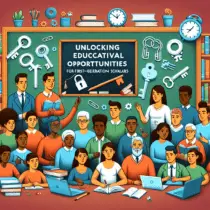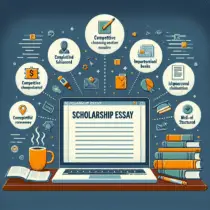Effective Study Techniques for Modern Learners
Studying effectively is a crucial skill for modern learners, given the rapid pace and ever-changing landscape of education. The right study techniques can make a significant difference in academic performance. By incorporating specific strategies, students can enhance their understanding and retention of the material.
One essential technique is active learning, which involves engaging with the material actively rather than passively reading or listening. This can be done through summarizing information in your own words, teaching concepts to someone else, or using flashcards. Active learning helps in deepening comprehension and improving recall.
Another crucial method is space repetition. This involves reviewing material at increasing intervals over time. It has been shown that space repetition leverages the psychological spacing effect, which helps to better retain information in long-term memory.
Additionally, interleaving practice refers to mixing different topics or forms of practice in one session. Rather than focusing on one type of problem, this technique encourages learners to develop various strategies to solve problems, making it easier to apply knowledge in different contexts.
Note-taking techniques such as the Cornell Method, Mind Mapping, or the Outline Method can also greatly enhance study efficiency. Each method is designed to help organize information in a clear, concise manner, which aids in understanding and remembering key concepts.
Furthermore, setting specific goals and creating a study schedule can make study sessions more effective. By planning study times and breaking down material into manageable chunks, learners make the process less overwhelming and more focused.
Technology tools have become integral to modern studying. Tools such as digital flashcards, apps for time management, and online forums provide diverse resources for efficient learning. For instance, platforms like Quizlet and Anki help with space repetition, and tools like Forest can help in minimizing distractions.
It’s also worth noting that seeking scholarship opportunities can motivate learners. Scholarships such as the $1000 GoDaddy Women in Technology Scholarship, UK 2024 support students financially, thus allowing them to focus more on their studies rather than financial worries. Additionally, specific scholarships like the Architecture and Environmental Design Scholarships can encourage students to pursue and excel in specialized fields with added financial support.
Collaboration and discussion with peers is another effective technique. Group studies can provide new perspectives and enhance understanding through discussion. It allows students to fill in gaps in their knowledge and develop a deeper understanding by explaining the material to others.
Regular breaks and maintaining a healthy lifestyle cannot be overemphasized. Studies have shown that taking short breaks while studying helps to keep the mind fresh and more focused. Exercise, adequate sleep, and proper nutrition contribute to better cognitive function allowing more productive study sessions.
Reflection and self-assessment are valuable for modern learners. Reflecting on what methods worked, where there were challenges, and how to improve can lead to better-performing learning strategies.
In conclusion, effective studying for modern learners involves a combination of active learning, spaced repetition, note-taking techniques, technology tools, goal-setting, collaboration, maintaining a healthy lifestyle, and seeking scholarship opportunities like the $1000 GoDaddy Women in Technology Scholarship, UK 2024 and Architecture and Environmental Design Scholarships. By integrating these strategies, students can optimize their study routines and achieve academic success.






